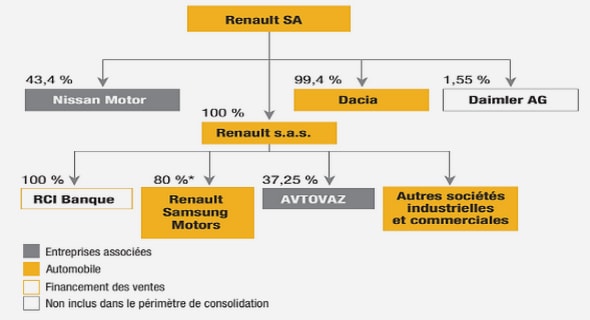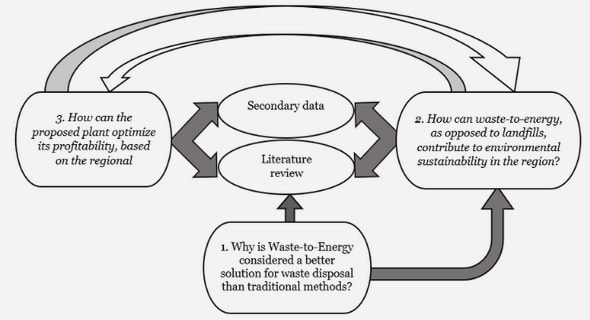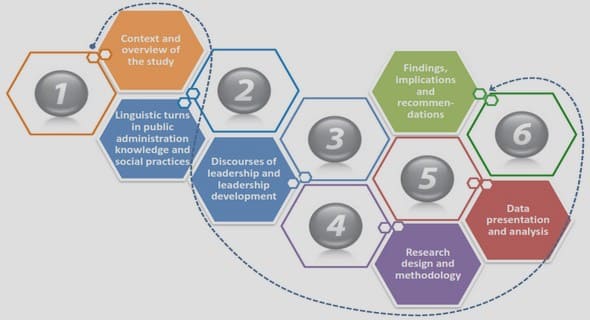Get Complete Project Material File(s) Now! »
Chapter 2: Grounding Voluntary Organisations ‘Virtue in itself is not enough: there must also be the power to translate it into action.’
Introduction
Voluntary organisations come from the sphere of the political economy known as civil society, which has been generally described as supportive of democratic principles.270 One analyst observes that ‘a robust, and vibrant civil society strengthens and enhances liberal democracy.’ 271 Democratic principles are generally applied to individuals and their relationships with the state, but in this research they are applied to charities, particularly in so far as they use processes of representative democracy and promote the freedom of association. This is the subject of the first part of this chapter. The political variable in civil society arises from different views of three things: the scope, power and autonomy of FSP organisations. This political variable needs better understanding and is discussed in the second part of the chapter. From a pluralist perspective – that is, culturally, morally and philosophically pluralist – the voluntary sector usually supports the expression of a wide range of views and interests. Policy advocacy by FSP organisations makes voices heard which are commonly excluded from public debate, on the grounds that charities frequently serve individuals who are marginalised from society. Often these voices are only heard through the collective action of organisations speaking on their behalf. Another perspective on the political variable states that governments do well to recognise that power must ‘earn its legitimacy … [and] must have the tacit agreement of a large proportion of public opinion.’So FSP organisations have power through the participation of citizens through an associative forum as well as through the political-electoral cycle.
Civil society: A rationale for FSP organisations
A fundamental assumption of this review of civil society is the pluralism aids society when many voices within civil society participate in public discussion and debate. Western liberal democracies have each developed particular perspectives about how plural voices should be heard and in New Zealand there is some evidence of ideological differences on the involvement of FSP organisations in making these voices heard.275 These differences may help or hinder the potential for FSP organisations to provide solutions to intractable social, economic, environmental and political problems.276 Civil society therefore is a space of plural interests, plural values and plural forms of association – all supposedly freely co-existing.However pluralism has the potential to create a good or bad society277 when dominant voices either promote the public benefit or diminish it. While this research specifically excludes organisations which are acting undemocratically and unlawfully – ‘bad civil society’such as hate groups and antisocial or criminal organisations – it does not exclude associations that can ‘coordinate common sentiments and mobilize puny individual resources into potent devices for voicing grievances and desires to public officials.’ And, while excluding fundamentalist, authoritarian forms of organisation the research does attempt to take into account the heterogeneity of organisations and the strong connection between organisational politics and organisational economics There is a complex task in defining civil society – many, conflicting conceptions exist281 of this ‘loose and baggy monster’. Notwithstanding this, it is still crucial for healthy democracies and more importantly, provides areas of theory that can be useful. Some descriptions include autonomy as a defining feature – ‘non-coerced human association and … a set of relational networks’ and ‘the totality of non-state institutions, organizations and civic associations functioning in the public domain…. which are relatively autonomous from the state and based on voluntary membership.’So, the conclusion here is that autonomy is important in civil society organisations. For a policy-related investigation the following definition is useful. ‘Civil society refers to the structures of socialization, association and organized forms of communication of the life-world [in society] to the extent that these are institutionalized or are in the process of being institutionalized.’ This statement leads to the application of new institutionalism theory set out in the following chapter. A definition of civil society that applies to the conditions of policy advocacy in New Zealand (with the key ideas emphasised) is:
A ‘public realm of autonomous groups and associations, which are voluntary in nature” and comprised of individuals who ‘advance their [common] interests’ while being ‘bound by a legal order or set of shared rules’ including rangatiratanga Civil society principles – Searching for firm ground An examination of pre-modern concepts of democracy provides grounding principles because the notions on which civil society is based have much in common with these concepts. These principles are: ‘liberty’, ‘spaces for political community’, ‘self-sufficiency’, ‘collective judgment’ and ‘advocacy’. Despite the changing social, economic and political contexts that influence the development of civil society and the revival of interest in recent decades, the principles remain useful in understanding the philosophical context of voluntary associations.
Abstract
Acknowledgements
List of Tables
List of Figures
Glossary
Introduction
Social economy and public policy in New Zealand
Charitable purposes
Context and research significance
A personal perspective
Comparing New Zealand with other countries
Dual narratives for New Zealand and a dual ethos for charitable service
Current perspectives
Research design overview
Structure of the thesis
Conclusion
Chapter 1: Concepts and Research Issues
A common understanding of the voluntary sector
Concepts of social economy and For-Social-Profit (FSP) organisations
Public policy in the social economy
Market concepts
Social services market concepts
Public information market concept
Marketisation in the social economy
Marketisation internationally
New Zealand’s marketisation experience
Market-focus in social services – operationalising the concept
Sector level issues in the marketisation of social services
Organisation-level issues with marketisation of social services
Social enterprise
For-social-profit advocacy concepts
Policy advocacy factors: Sector level
Policy advocacy: Organisation level
Conclusion
Chapter 2: Grounding Voluntary Organisations
Civil society: A rationale for FSP organisations
Civil society principles – Searching for firm ground
Liberty and equality – and Unity
Spaces for community
Self-sufficiency
Collective wisdom
Advocacy and political justice
Sectorial relations in tension – state, market, civil society
Development of market concepts in civil society
State’s role in civil society
Neopluralism – Multiple voices in a complex world
State’s role in a neopluralist policy system
Civil society’s role in neopluralism
Conclusion
Chapter 3: Theorising the Policy Voice of Voluntary Organisations
Theory for public policy
Theoretical approaches
The voluntary sector as an institution: New institutionalism theory
Applying institutionalism to a study of FSP organisations
Defining the logic driving voluntary service organisations
Freedom and autonomy
Is the autonomy of collectives and individuals the same?
General theoretical concepts of freedom and autonomy
Freedom for collectives – Essential features
Ascribing collective autonomy through supports and constraints
Economic theories
Social services as a monopsony
Resource dependency
Agency theory and stakeholder theory
Conclusion
Chapter 4: Methodology
Research rationale and questions
Research question and approach
Research approach
Developing a method from the literature.
Method
Mixed methods design
Research propositions
Applying the data to the propositions
Data mix and mash
Identifying relevant variables
Selection of population and sample
Methodology issues
Conclusion
Chapter 5: New Zealand’s Voluntary Sector as an Institution
Culture and Legal Constraints pre-1984
Institutionalism of the voluntary sector
Overview of Institutional Features: Culture, Constraints and Constituents
Institutional Culture and Legal Constraints
Cultural factors and institutional values
New Zealand cultural influences – an historical overview
Political culture: Themes and paradoxes
Constraints: institutional rules and laws
Charity law development
A unique facet of charity rules – the Treaty of Waitangi
Current legislation applicable to the voluntary sector
Taxation issues
Research findings on legislative constraints
Conclusion
Chapter 6: Constraints through Government Policy from 1984
Macro policy settings and machinery of government changes
Funding policy changes
Policies of reform and consumer choice
Policy to encourage the growth of contracting
Emergence of voluntary sector policy
Efficiency is key but at the loss of autonomy?
Continuing constraining factors in the policy environment
Results of research on government policy constraints
Policy system
Sector policy
Contracting policy
Conclusion
Chapter 7: Constituents in the Voluntary Sector
Government as Primary Stakeholder in FSP Organisations
State-voluntary sector relationship
Interdependence of the voluntary sector and government in social services
FSP organisations need to work with the government
The government needs to work with FSP organisations
Paradoxes in the relationship and a dual ethos
Hands on or hands off? Two political ideas affecting the relationship
State interventionism – ‘Hands on’
Neoliberalism and New Public Management – ‘Hands off’
Implications of the continuity of political ideas
Charities’ relationship with its regulator
Constraining the relationship around advocacy – the Charities Act 2005
Consequences of Charities Commission decisions for the sector
Other voluntary sector constituencies
Interest groups
Networks
Conclusion
Chapter 8: Results: Market-focus and Policy Advocacy
Overview of the mixed method analysis
Sample description
Characteristics of the sample
Results of qualitative analysis
Market-focus of social services – Sector level issues
Marketisation of social services – Organisational level issues
Policy advocacy
Policy advocacy factors– sector level
Policy advocacy factors – organisation level
Results of quantitative analysis
Market-focus
Policy advocacy choices
Organisational Autonomy
The autonomy question
Conclusion
Chapter 9: Discoveries, Implications and Further Work
Public policy issues of the social economy
Policy system issues
Market-focus in social services
Policy advocacy
Principles for the social economy
An institutionalist-autonomy analysis.
Constraints
Culture
Constituents
Reflections on autonomy
Development of a theoretical framework for voluntary sector research
Reflection on the Treaty of Waitangi in this research
Research method review and critique
Recommendations for further work
Appendices
GET THE COMPLETE PROJECT
Policy Advocacy by Government-funded Charities in New Zealand


